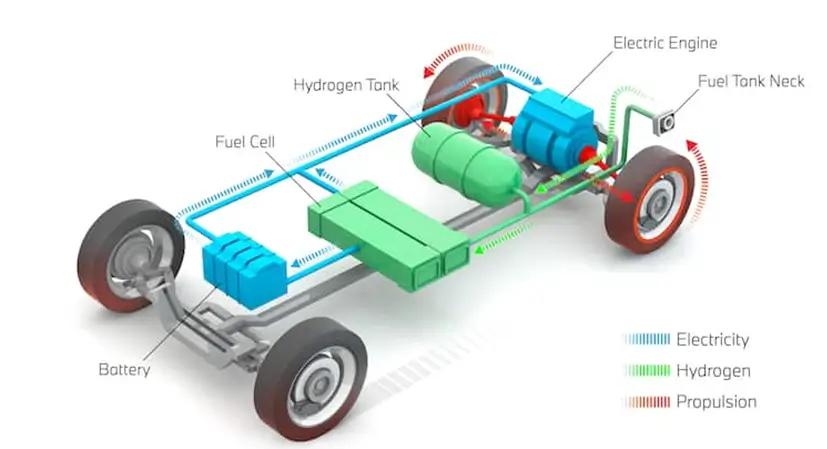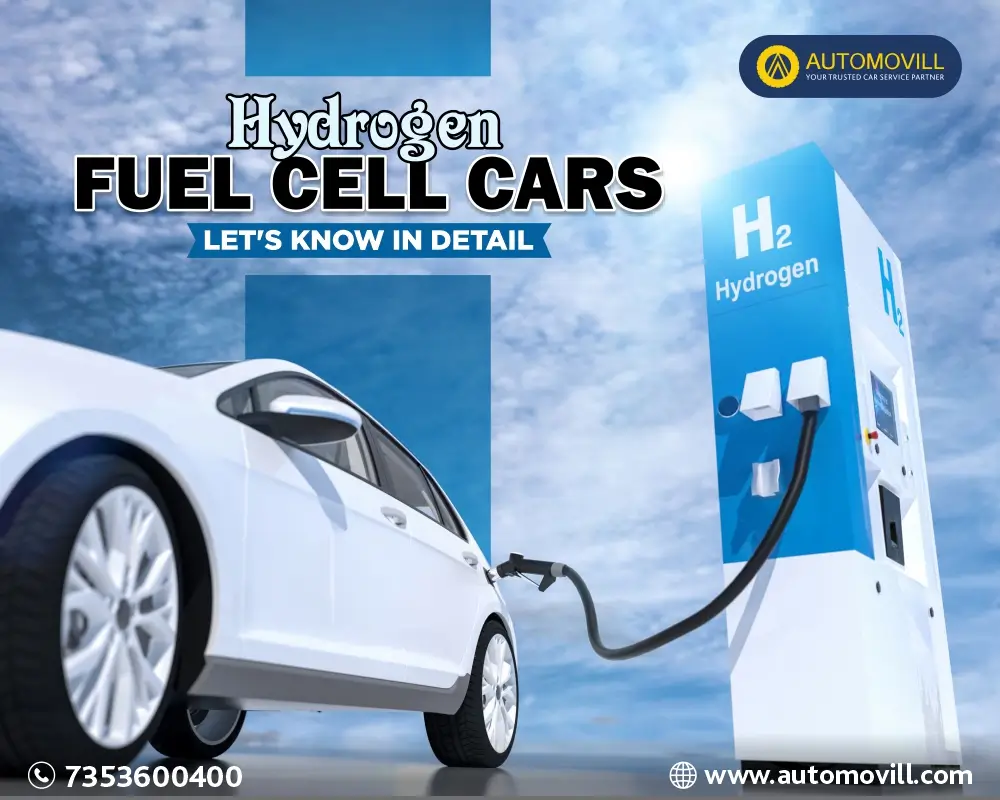India is getting ready to test a new generation of hydrogen fuel cell-powered electric cars in an effort to lessen its environmental carbon impact. It’s in the news all over that, the nation’s largest thermal power producer, National Thermal Power Corporation (NTPC), intends to purchase such vehicles for test projects.
According to the article, the international automakers Toyota and Hyundai Motor as well as the Indian firms Tata Motors, Ashok Leyland, and KPIT Technologies have expressed interest in the project.
Let’s examine the cars based on this zero-emission technology and learn how fuel cell-based electric vehicles (FCEVs) operate first:
How Do FCEVs operate?
The FCEVs are electric vehicles that get their power not just from a battery but also from a fuel cell that runs on hydrogen. The battery is only used by FCEVs for auxiliary purposes, such as starting the car or storing energy from regenerative braking, as opposed to traditional electric vehicles, which rely on the battery as their main source of traction. As a result, the FCEVs use hydrogen as fuel to run but do not need plug-in capabilities to charge the battery.
What is the secret of a fuel cell?
The term “hydrogen fuel cell” sounds quite interesting, but really, it’s just an electric car that uses an onboard electrochemical system to generate power instead of large lithium-ion batteries.
The system’s power source is the fuel cell. In it, platinum is often used as the catalyst as hydrogen gas is extracted from an onboard pressurized tank and reacted with it. The procedure removes the hydrogen’s electrons, allowing the hydrogen atoms to function as the electricity that powers the car’s electric motor.
As soon as electrons have completed their duty, they return to the fuel cell, where they react with the hydrogen and oxygen taken from the atmosphere. Two hydrogen atoms and one oxygen atom clash in this collision and generate water. The water assists in cooling down the stack before it drops from the vehicle’s exhaust as a mixture of steam and distilled water because all those agitated molecules produce heat.
Because a single fuel cell doesn’t generate a lot of electrons, automakers must stack a number of flat, rectangular cells to generate enough power for a vehicle. The stack functions similarly to a lithium-ion battery, continuously providing electricity to run the car’s electric motor and auxiliary electronics.

What will be the cost of Hydrogen fuel?
The justification for fuel-cell-powered cars is rather straightforward: Unlike a battery-powered system, the range of a fuel-cell electric vehicle is unrestricted. Fuel-cell vehicles are not connected to a cord for charging. Their tanks can be filled almost as quickly as the gas tanks of regular vehicles, and they have a range of 400–550km. Few believe they will replace battery-electric vehicles, despite the fact that they can be very practical for drivers with short commutes. But in the upcoming years, it is anticipated that they will contribute significantly to the alternative fuel fleet.
Some automobiles are pricey to buy, while others are pricey to own. The average price of hydrogen fuel is ₹160-170 per kg by 2030.
It should be mentioned, nevertheless, that hydrogen fuel is significantly more effective than petrol. On the interstate, a Mirai can do 114 km per kilo, and 122 km in the city.
Why should you be interested in Hydrogen fuel vehicles?
- An FCEV system is more efficient than an engine running on petrol. The majority of the fuel-cell vehicles that will be available in the future will be able to go about 112 km per kilogram. It translates to 112 km per litre.
- Additionally, compared to the battery packs that are the main component of plug-in electric drive systems, fuel-cell systems are much more compact. This implies that they may be scaled up more readily without suffering from the weight restrictions that render charging systems useless for sedans, SUVs, and trucks.
- FCEV’s are therefore easy and simple to refuel, in contrast to battery-electric vehicles, which often come in compact sizes with limited range and long recharge times. Everything from small automobiles to big pickup trucks could run on fuel-cell technology.
- They are also genuine zero-emission vehicles, just as clean as current battery-electric vehicles. Additionally, they are nearly as clean from well to wheel.
- They are the only zero-emissions car that can have a significant influence on oil use and air quality.
Future of Hydrogen powered vehicles in India
This March, Nitin Gadhkari launched a pioneering hydrogen-based advanced Fuel Cell Electric Vehicle (FCEV) pilot project that will mark a significant move away from conventional fuels and toward the preservation of our environment.
At this event, Nitin Gadkari also introduced Toyota Mirai, which is a hydrogen fuel-driven car.
This seeks to help India’s hydrogen-based society by raising awareness of hydrogen, FCEV technology, and its advantages.
Here Toyota Mirai is being studied and evaluated on Indian roads and environmental factors as part of a pilot project carried out by Toyota Kirloskar Motor and ICAT.
The statement added that green hydrogen is gaining remarkable pace internationally and offers enormous prospects to decarbonize a variety of sectors, including road transportation. NTPC has set a deadline to begin operating buses from Delhi to Jaipur that run on hydrogen.
“Green Hydrogen can be produced from renewable energy and readily available biomass,” Gadkari stated. Technology to tap into green hydrogens is introduced and adopted.
FAQs About Hydrogen Fuel Cars
1) What is a hydrogen fuel cell car?
Fuel cell electric vehicles run on hydrogen (FCEVs). They only emit warm air and water vapour, have zero tailpipe emissions, and are more energy-efficient than cars with traditional internal combustion engines. The deployment of FCEVs and the necessary hydrogen infrastructure is still in its early stages.
2) Do hydrogen fuel cell cars have a future?
If not now, but in the future, hydrogen-powered cars could be a practical choice for individuals seeking an environmentally friendly and sustainable means to power their vehicles.
3) How far can hydrogen cars go?
The maximum range depends on the size of the fuel cells; the majority of hydrogen vehicles now on the market have a range of around 500 – 600 km.
